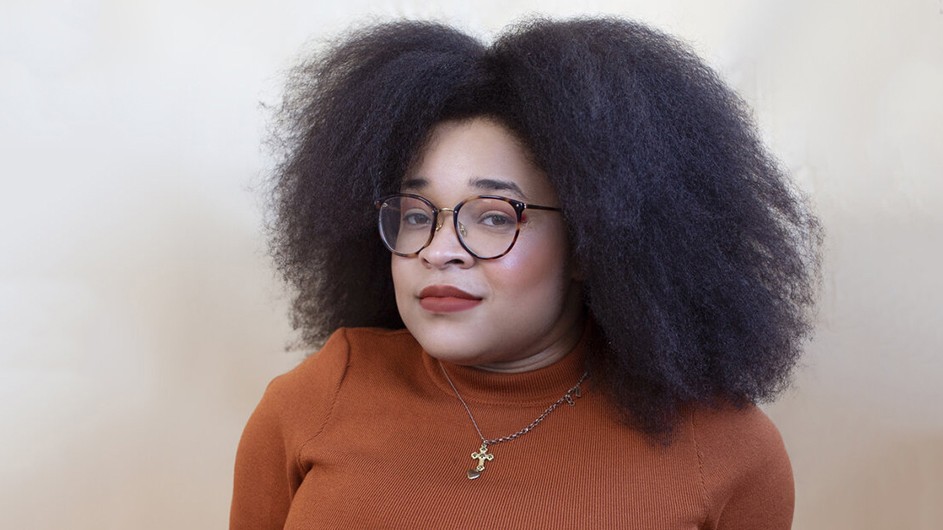A New Novel Set in Harlem Brings to Life the Bonds Between Mothers and Daughters
Morgan Jerkins, known for her powerful nonfiction writing, turns to fiction with “Caul Baby.”

Caul Baby, the debut novel by Morgan Jerkins, an adjunct professor in the writing program at the School of the Arts, blends generational family drama with magical realism to tell a story about Black motherhood and matriarchs, community and tradition, gentrification and ownership.
Jerkins discusses the book with Columbia News, as well as what she plans to read next, how she switches seamlessly from writing fiction to nonfiction, and who she would like to invite to a dinner party.
Q. What was the impetus behind Caul Baby?
A. Caul Baby was an amalgam of being inspired by Harlem and city living, while also learning about the precariousness of Black motherhood in America. The story itself has gone through many iterations. Initially, it was only supposed to be a short story, but one of my advisors during my MFA program, Alexander Chee, suggested that it become a novel. I’m glad I took him up on his advice.

Q. Is it easy for you to switch back and forth between writing fiction and nonfiction? What is the main difference between the two genres?
A. Yes, it’s easy, because I've been doing it for several years. I've been writing fiction since I was a teen, but I first gained prominence in my professional life for writing nonfiction, so I learned to juggle both genres. The main difference is that with nonfiction, I take more of a journalistic style, especially with my last book, Wandering in Strange Lands. However, in fiction, the rules I make on my own, and I have to adhere to them, which is more difficult than you think!
Q. What's next on your reading list?
A. The Ledger and the Chain by Joshua Rothman, a history professor at the University of Alabama. He is an amazing historian, and this book will center around the lives of two of the biggest domestic slave traders in American history. I actually got the chance to speak to Professor Rothman about these men because they separated more African American families than anyone else. I expect to be fully moved by this book.
Q. What did you teach this term? How have you helped your students with online learning during the pandemic?
A. I taught a nonfiction workshop. I try to teach my students with a holistic approach. We, as writers, spend a lot of time in our heads, and it’s important to check in with our bodies, too, especially during a time like this. I tell the students to be gentle with themselves, just as I need to be gentle with my own self. I’ve been lucky that each and every week, my students, though they are spread out across the country, are attentive and engaging. We’ve created a warm and supportive environment through Zoom.
Q. How have the events of the past year affected your writing?
A. The past year has made me pour more into fiction and be more imaginative because reality has been too much at times. I must have thought of over 20 ideas, but I don’t feel the necessity to dive immediately into brainstorming because I’m not going anywhere. The pandemic has forced me to slow down, and I’m allowing certain ideas to ferment or even disappear. Not everything needs devotion, and I’m so used to multitasking with not enough rest in between.
Q. What are you working on now?
A. I’m working on another novel and some screenplay ideas. The novel is even more ambitious than Caul Baby, as I’m incorporating more history, and I’m thankful to have a research assistant to help me with the legwork. I’m also juggling teaching and a full-time day job as an editor, so it’s a balancing act. I do want to emphasize that you do not have to write every day to consider yourself a writer. Just as my routine is liable to shift, so am I.
Q. You're hosting a dinner party. Which three academics, scholars, or writers, dead or alive, would you invite, and why?
A. I’d invite Zora Neale Hurston, Jesmyn Ward, and Saidiya Hartman, and we would have the party in Harlem. These women have inspired and influenced me so much, and I feel like we could talk for hours about Black history and fabulism in our research and books. We would have soul food, and there would be enough wine to go around for everyone. I’m not sure how Zora would feel about present-day music, but we would make it work.
Check out Books to learn more about publications by Columbia professors.